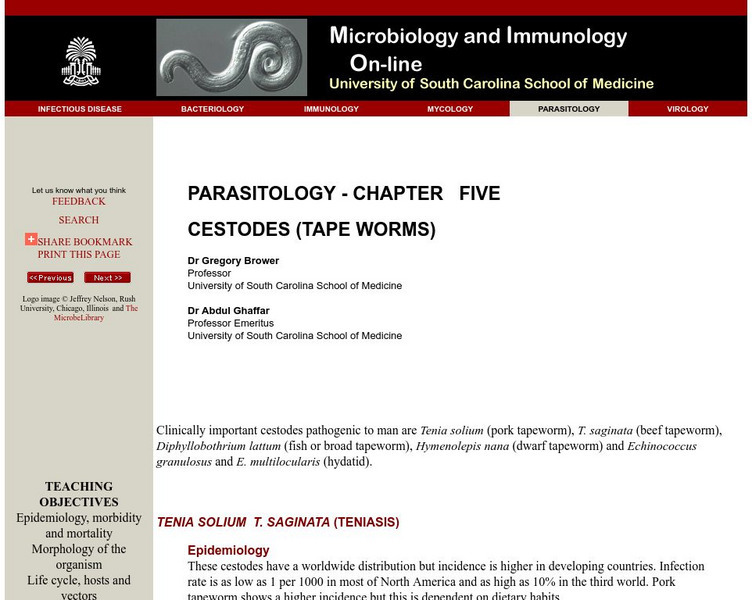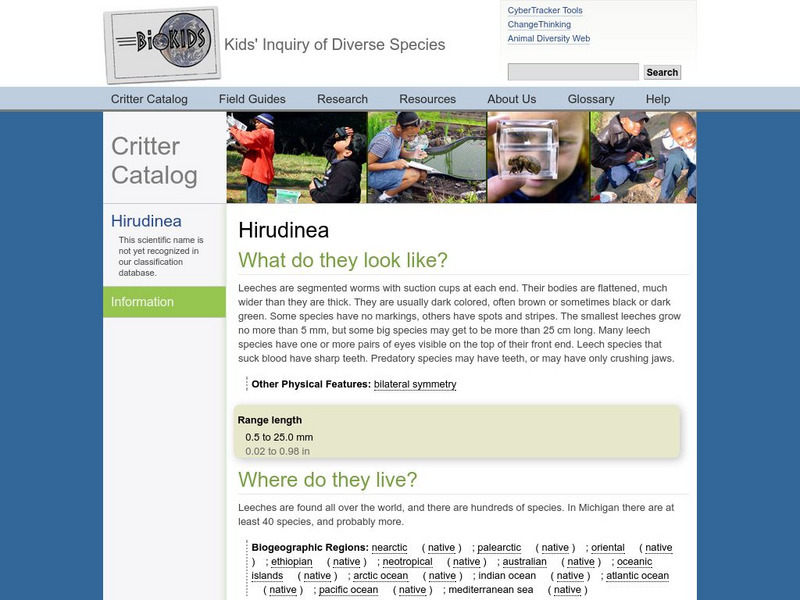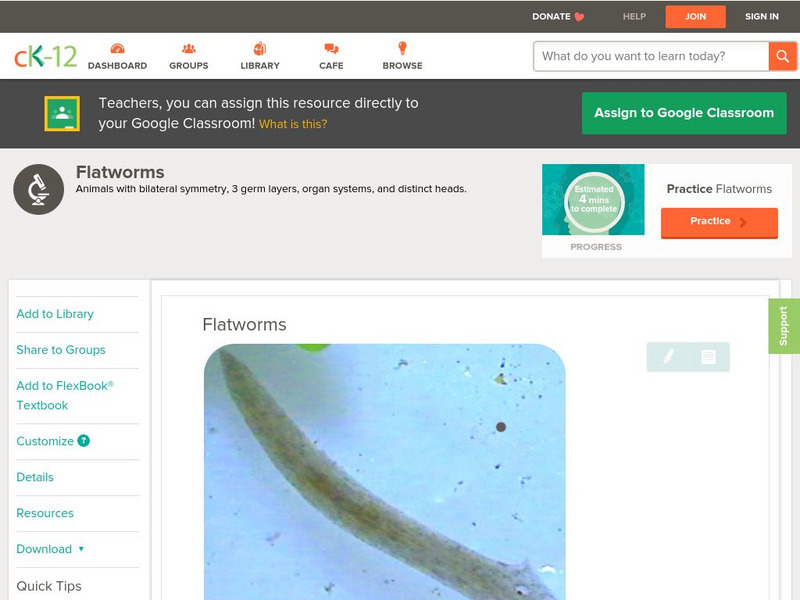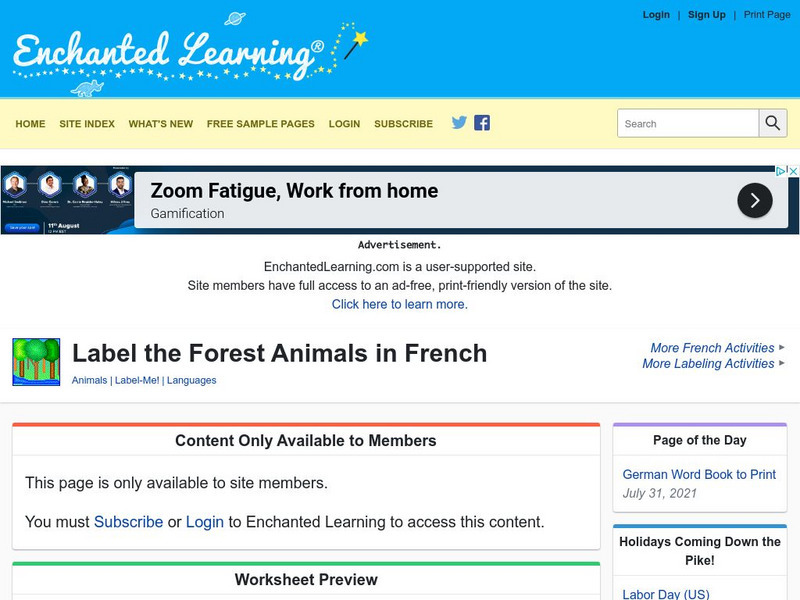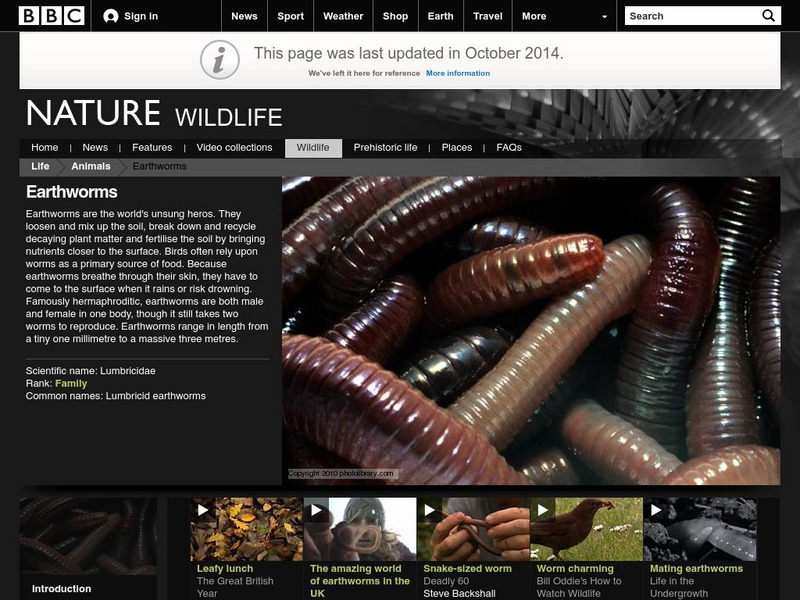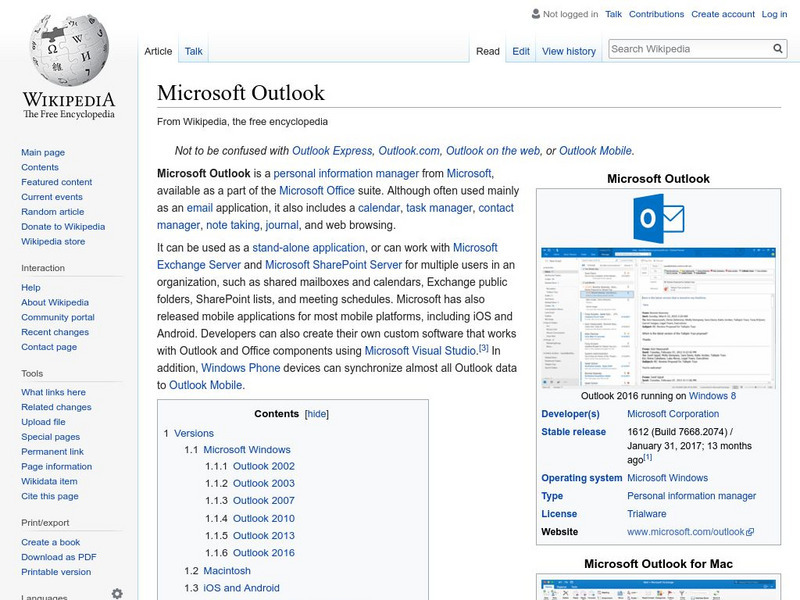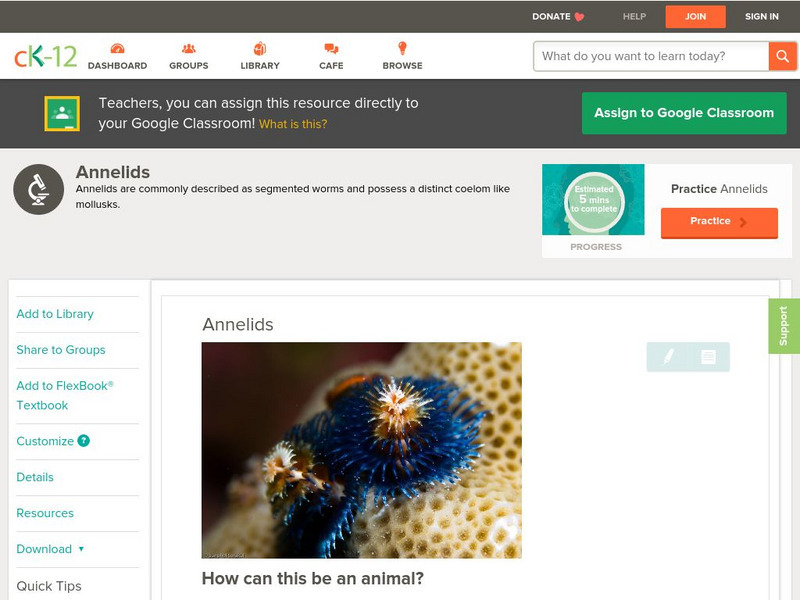Stanford University
Standford: Fascioliasis
For a very complete overview of the sheep liver fluke, this site is worth viewing. Topics range from agents of infection to preventative measures. The site contains a life cycle graphic and links to additional websites.
Language Guide
Language Guide: Los Insectos
Colorful pictures display various types of insects. You can hear the correct Spanish pronunciation and see the correct spelling by holding your mouse over the picture.
Other
Native Planet: Dangerous Sea Life
Learn about venomous fish and other animals with the ability to inject venom, such as jellyfish and other venomous invertebrates.
Other
Parasitology: Chapter Five: Cestodes
An exhaustive look at numerous types of tapeworms that infect different animals. The site contains numerous pictures and life cycle diagrams. There are links to lectures and additional websites.
Centers for Disease Control and Prevention
Centers for Disease Control: Parasites and Health: Fascioliasis
This is a detailed overview of the Fascioliasis parasite. The overview includes information about the infectious agent, life cycle, distribution, symptoms and treatment options.
Other
New Brunswick Waste Management /"Backyard Magic"
Comprehensive description of the environmental benefits of composting solid waste. Complete directions for composting, detailed description of composting chemistry, suggestions for applications of humus, question and answer page,...
University of Michigan
Bio Kids: Critter Catalog: Leeches
This page answers questions that students might ask about leeches, including classification information. It also has excellent photographs of them and links to more in-depth information.
Museum of Science
Mo S: Image Gallery of the Scanning Electron Microscope
At this resource you'll find everything from a mosquito head to a fly foot, from a dentist's drill to toilet paper! These and just about everything in between as seen through a scanning electron microscope.
CK-12 Foundation
Ck 12: Life Science: Flatworms
[Free Registration/Login may be required to access all resource tools.] The word "worm" is not very scientific. But it is a word that informally describes animals (usually invertebrates) that have long bodies with no arms or legs. Worms...
University of Nebraska
University of Nebraska State Museum: Parasite Sleuth: Where Parasites Live
This site highlights 10 parasites, including worms, insects, ticks and microorganisms. For each organism you can get information concerning their life cycle and geographic distribution.
Science Education Resource Center at Carleton College
Serc: Black Smokers: Life Forms
This educational web site features life forms of deep sea hydrothermal systems. Hosted by the American Museum of Natural History, this site offers a brief introduction of the community and then focuses on Vestimentiferan tube worms,...
American Institute of Biological Sciences
Action Bioscience: Species: Comparing Their Genome
Identify the significance of studying the genome of different species. Yeast, mouse, fly, and worm all contain several common genes or proteins to humans that allow for disease research.
Enchanted Learning
Enchanted Learning: Forest Animal Vocabulary Printout
This site has printout drawings of half a dozen animals (bear, deer, worm etc.) and some related parts (claw, antlers). Provides a fill-in-the-blank format. Can also be printed with labels already filled in. Uses answers as a word bank....
Other
Junior Master Gardener: Compost Critters
Try to guess the name of each insect, worm, or other small creature that lives in a compost bin. Clicking on each image leads to a page of detailed information about that species.
Bill Nye
Bill Nye: Planaria Fishing
In this tutorial, Bill Nye explains how to catch planeria, small carnivorous worms that live in ponds. In addition, he explains their role in the environment.
Texas A&M University
Insects in the Classroom: Lesson Plans
A very comprehensive site that includes insect lesson plans for ages 3-18 and links to a syllabus, course material, activities, and related resources.
BBC
Bbc: Nature Wildfacts: Common Earthworm
Before you go looking for an earthworm, learn more about it from this detailed fact sheet and from these close-up photos.
Sam Houston State University
Sam Houston State University: Chordate Characteristics
This site describes the characteristics of Chordates. There are also examples of two groups that show an affinity toward the phylum Chordata but do not actually exhibit the characteristics. This site also describes the history of the...
Stanford University
Enterobius Vermicularis
Get the facts on the pinworm parasite. Everything from the history of discovery to public health strategies is available. A life cycle diagram provides a good overview of the problem of disease transmission.
Wikimedia
Wikipedia: Microsoft Outlook
Add your knowledge about Microsoft Outlook to the Encyclopedia Wikipedia. There are many links, especially about the history of various versions of Outlook and the technical operations aspects.
Other
University of Aberdeen: The Phyla of Kingdom Animalia
Very systematic breakdown of the animal kingdom starting with the simplest type the sponge, all the way to the chordate or vertebrate. Each phylum has a link with information.
Regents of the University of Michigan
Animal Diversity Web: Phylum Nematoda
The Animal Diversity Web offers a general introduction to the roundworm and some of its physical characteristics.
CK-12 Foundation
Ck 12: Biology: Annelids
[Free Registration/Login may be required to access all resource tools.] Discusses characteristics of annelids like earthworms.
Other popular searches
- Diary of a Worm
- Worm Rhyme
- Meal Worms
- Gummy Worms
- Earth Worms
- Inch Worms
- Worm Composting
- Segmented Worms
- Measurement Grade 3 Worms
- How to Eat Fried Worms
- Wonderful Worms
- Tube Worms



